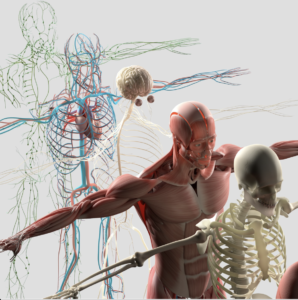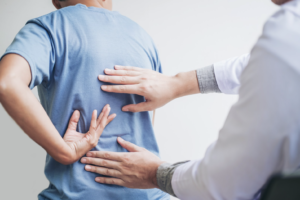The phrase” you’ve gotta work your core” is frequently misinterpreted. We hear this from our doctors, our trainers, and sometimes our friends regarding treating or dealing with lower back pain. Let us first define core as the central, most important part of something. The misinterpreted portion of that phrase is the word core, as it is thought to be the anterior core musculature, particularly your abs. This is only partially true! Our core musculature fully wraps around our torso and forms a type of stability blanket around our internal organs and spine. It provides a central anchoring system for our limbs to move and manipulate objects in space. The deeper posterior and lateral core musculature is most responsible for stabilizing the spine and helps to prevent low back injuries from occurring in the first place.
Low back pain can have many origins, but disc injury is one of the most serious. In disc injuries, compression of the nerve roots can occur, resulting in localized inflammation and pain that can refer to the buttocks or the leg. Even the best-trained core can sustain a disc injury due to poor lifting mechanics or movement patterns. However, the chances of injury go down as your core function goes up. In sports such as soccer, volleyball, and baseball, the core is used to stabilize the body’s center, so kicking, serving, and throwing can occur. Without a sufficiently trained core, we can fall into poor movement patterns resulting in increased risk for knee, hip, elbow, and shoulder injuries. This causes us to use muscles improperly to make up the difference for force production, resulting in more injuries over time.
The take-home is that your core plays a vital role in injury prevention locally at the spine and globally with our extremities. At First Choice, we can help improve your resiliency to injury by providing you with the tools to achieve and maintain a stronger, more functional core. It is often the center from which we begin to rehabilitate our low back pain patients and is the focus of prevention for our athletic population. Give us a call to schedule an appointment with one of our Doctors of Physical Therapy 850-248-1600.


